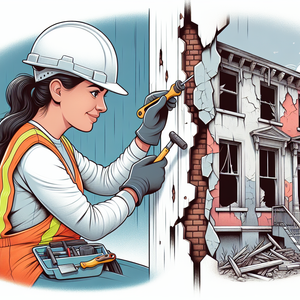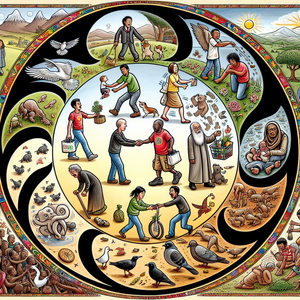Embracing Failure: The Key to Personal Growth

From a young age, many of us are taught that failure is something to be ashamed of. As children, we receive accolades for achievements while setbacks are often brushed aside or dismissed. This narrative cultivates a fear of failure, causing people to avoid risk-taking and shy away from pursuing their passions. The reality, however, is that failure is an inherent part of the human experience—one that every successful individual has encountered. The differentiating factor lies in how one responds to these challenges.
The Transformative Power of Failure
Every failure is laden with lessons waiting to be uncovered. A prime example is Thomas Edison, the inventor of the light bulb, who famously remarked, "I have not failed. I've just found 10,000 ways that won't work." Edison's relentless experimentation, despite countless setbacks, underscores the idea that each failure can refine our approach and bring us closer to our goals. By treating failures as learning experiences, we can adapt and innovate.
Resilience Building
Embracing failure is a powerful way to cultivate resilience. Facing setbacks provides us with opportunities to develop grit and determination. Take J.K. Rowling, for instance. The author of the Harry Potter series faced numerous rejections before her first book was published. Each rejection could have been a reason to give up, but instead, it fueled her resolve. Rowling's journey illustrates that resilience transforms obstacles into stepping stones toward success.
Redefining Success
Failure encourages a reevaluation of what success means on a personal level. Instead of conforming to societal standards, individuals can learn to set their own goals based on their values and aspirations. Oprah Winfrey's early career challenges are a testament to this principle; she ultimately defined success by the impact she had on others rather than conventional metrics of achievement. This shift in perspective can lead to a more authentic and fulfilling life.
Fostering Innovation
In business and creativity, failure can ignite innovation. When individuals and organizations cultivate an environment where failure is not feared, they become more willing to experiment and take risks. Google is a prime example of this practice; the company encourages its employees to embrace failure, which has led to groundbreaking products like Gmail and Google Maps. By viewing failure as a potential source of innovation, organizations can foster creativity and progress.
Practical Tips for Embracing Failure
Change how you perceive failure by viewing it as a stepping stone rather than a setback. When you encounter obstacles, reframe your thoughts to focus on learning rather than dwelling on what went wrong.
Reflect and Analyze
After experiencing failure, take time to reflect on what happened. Consider the factors that contributed to the outcome and what you could do differently in the future. This analysis can yield valuable insights that inform your next steps.
Seek Support
Build a network of individuals who understand that failure is part of the growth journey. Sharing experiences and learning from others can provide motivation and encouragement, making the process feel less isolating.
Celebrate Small Wins
Recognize and celebrate your progress, no matter how small. Acknowledging achievements—even in the face of failure—can bolster your confidence and keep you motivated for future endeavors.
Failure is not a barrier to success; it is an integral part of the journey toward achieving our goals. By embracing failure, we unlock the potential for personal growth, resilience, and creativity. The stories of Thomas Edison, J.K. Rowling, and Oprah Winfrey serve as powerful reminders that setbacks can lead to remarkable achievements. By challenging the stigma surrounding failure and viewing it as a valuable opportunity for learning, we can navigate our paths with courage, creativity, and authenticity. Ultimately, this mindset fosters a more fulfilling life, enabling us to embrace our journeys—failures and all.
Organizational Development Specialist
Google, Deloitte
Core Responsibilities
Design and implement training programs that foster a culture of resilience and adaptability within the organization.
Conduct assessments to identify areas of improvement and develop strategies to enhance employee engagement and performance.
Required Skills
Strong understanding of change management principles and employee development strategies.
Excellent communication and facilitation skills, with the ability to engage diverse teams.
User Experience (UX) Researcher
Apple, Microsoft
Core Responsibilities
Conduct user interviews and usability testing to gather insights on user behavior and needs, particularly in relation to products that help users overcome challenges.
Analyze qualitative and quantitative data to inform design decisions and improve user experiences.
Required Skills
Proficiency in research methodologies (e.g., usability testing, surveys) and tools like Sketch or Figma.
Strong analytical skills and ability to translate data into actionable insights.
Innovation Manager
Procter & Gamble, IBM
Core Responsibilities
Lead cross-functional teams in brainstorming and developing new product ideas that embrace failure as a learning opportunity.
Create an innovation strategy that encourages risk-taking and experimentation within the organization.
Required Skills
Strong project management skills with experience in agile methodologies.
Ability to foster a creative environment that encourages collaboration and open-mindedness.
Life Coach
Private practice, wellness centers
Core Responsibilities
Work with clients to identify personal obstacles and develop strategies for overcoming setbacks and embracing failure as part of their growth journey.
Provide tools and frameworks to help clients set and achieve their personal and professional goals.
Required Skills
Certification in coaching methodologies and experience in personal development practices.
Strong interpersonal skills and the ability to motivate and inspire clients.
Behavioral Scientist
Academic institutions, research organizations
Core Responsibilities
Conduct research on how individuals react to failure and success, contributing to the understanding of resilience and personal growth.
Develop interventions or programs that can help individuals cope better with failure and enhance their learning experiences.
Required Skills
Advanced degree in psychology, sociology, or a related field with experience in behavioral analysis.
Proficiency in statistical software and research methodologies.


